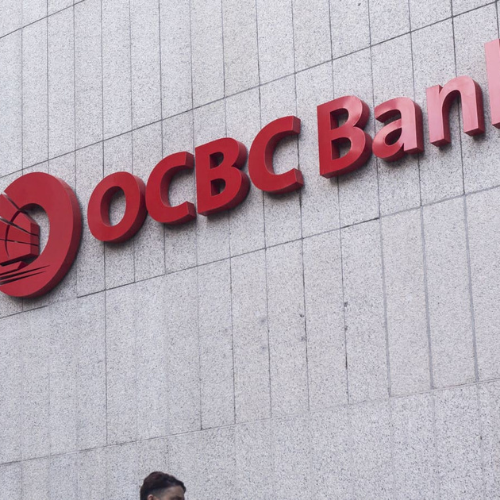Russia’s economy faces another significant setback as Oversea-Chinese Banking Corporation (OCBC), one of the largest banks in Southeast Asia, has decided to stop processing all transactions linked to the country. Starting in November, OCBC will no longer handle any business related to Russia, which includes all financial transactions involving goods, services, and trade within Russia’s borders.
This move is part of a wider trend of international banks distancing themselves from Russia as a result of the heavy sanctions imposed by Western nations. These sanctions were introduced primarily in response to Russia’s invasion of Ukraine in 2022. The goal of the sanctions is to isolate Russia economically and make it harder for the country to finance its operations and trade with the rest of the world. The decision by Oversea-Chinese Banking Corporation highlights the mounting challenges Russia is facing as the global banking community pulls away from doing business with the country.
Banks, like Oversea-Chinese Banking Corporation, are wary of facing penalties themselves, especially as Western countries have introduced the threat of “secondary sanctions.” These are penalties that can be imposed on banks, companies, or even countries outside of the immediate sanctioning nations if they continue to assist Russia in evading the restrictions. For financial institutions like OCBC, the risks of violating sanctions outweigh the benefits of continuing to deal with Russian businesses.
Why Oversea-Chinese Banking Corporation’s Move Matters
Although Oversea-Chinese Banking Corporation has not opened new accounts for Russian clients in the last two years, the bank was still facilitating certain transactions linked to Russia. However, as of November, OCBC will completely cut off these dealings. The bank has said that the decision is due to “operational challenges,” which means it has become increasingly difficult to ensure that all its transactions comply with the complex web of international sanctions now surrounding Russia.
By stepping away from Russia altogether, Oversea-Chinese Banking Corporation avoids the risk of being penalized by countries like the United States or the United Kingdom for any accidental violations. For a global bank like OCBC, avoiding even the slightest error in following sanction rules is critical, as penalties could range from heavy fines to restrictions on its business operations.
Chemical Weapons Claims: UK Imposes Sanctions on Russia’s Armed Forces
While the move is a clear signal that OCBC does not want to engage in any risky financial dealings, it is unlikely to have a large impact on the bank’s overall business. The decision to stop processing Russian transactions likely won’t hurt OCBC’s bottom line, as it had already scaled back its operations in Russia over the past two years. However, for Russia, the loss of Oversea-Chinese Banking Corporation is another blow in a series of setbacks, as more and more global financial institutions turn away from the country due to sanctions.
Russia’s Financial Isolation Deepens
The exit of Oversea-Chinese Banking Corporation adds to Russia’s growing financial isolation on the world stage. In recent months, Russia has seen several other international banks step away from handling its business transactions, most notably Chinese banks. According to reports from Russian state media, nearly all Chinese banks have stopped processing payments related to Russia, fearing the risk of being hit with secondary sanctions. This has made it increasingly difficult for Russia to maintain its trade relationships and conduct business internationally.
Russia has relied heavily on its reserves of foreign currencies, particularly the Chinese yuan, to manage international trade and ensure it can still purchase essential goods from abroad. However, these reserves are quickly depleting, adding pressure to the already strained Russian economy. Without sufficient foreign currency, Russia cannot easily pay for imports or engage in trade with other countries, further hampering its ability to sustain key economic activities.
Earlier this year, Russian businesses faced a major financial roadblock when billions of dollars in payments were frozen. This was caused by the sanctions and the hesitancy of global banks to process any transactions linked to Russia. This has left many Russian companies in a difficult position, unable to access the funds they need to pay for goods or conduct trade deals, both of which are critical for keeping their operations running.
The loss of Oversea-Chinese Banking Corporation is another major challenge for Russia as it continues to navigate these economic sanctions. As the global banking network shrinks for Russia, it becomes harder for the country to function in the international financial system. The more banks that pull out, the more isolated Russia becomes.
While Oversea-Chinese Banking Corporation is not the first international bank to step away from Russia, its decision signals the growing reluctance of banks to engage with the country under the current sanction environment. Each time a major banking partner like OCBC pulls out, Russia faces more difficulties in keeping its businesses connected to the global economy.
This withdrawal by Oversea-Chinese Banking Corporation, coupled with the exit of other financial institutions, highlights the deepening economic crisis Russia is experiencing due to the weight of international sanctions. Without access to global banking, Russia’s economy may continue to feel the strain as its options for international trade and finance grow increasingly limited.


